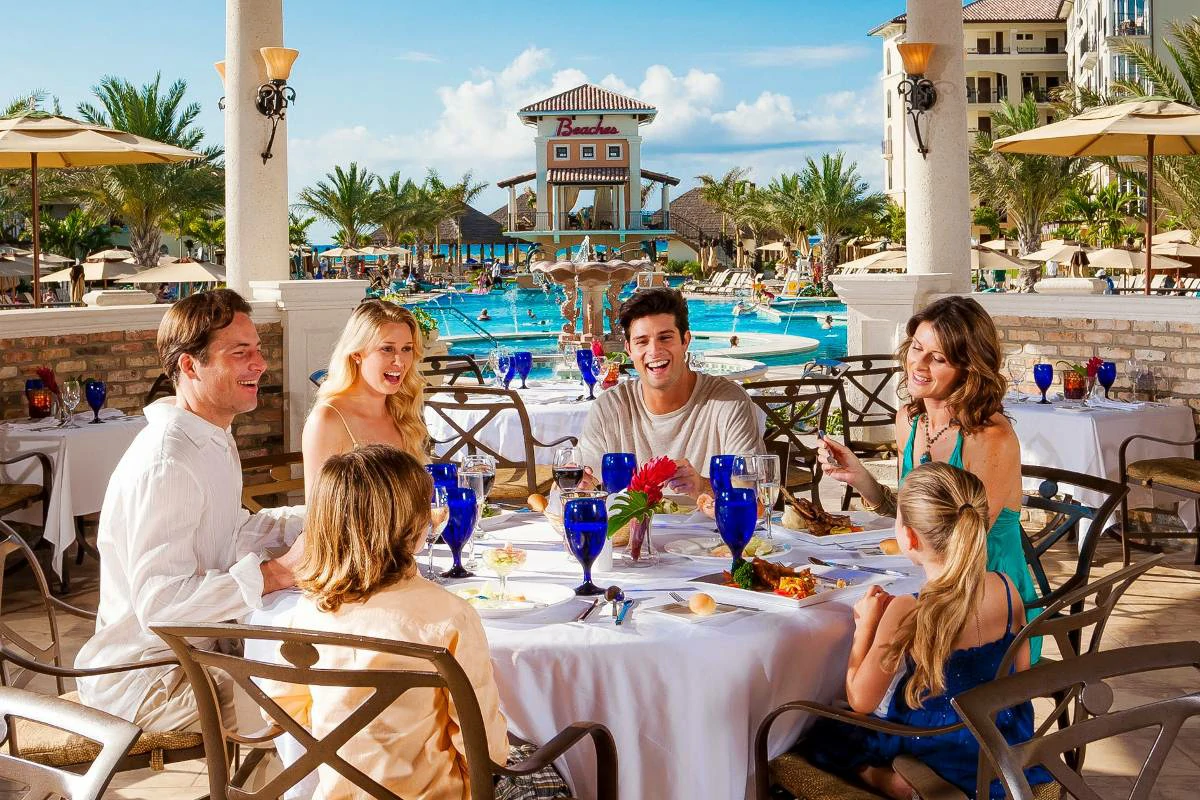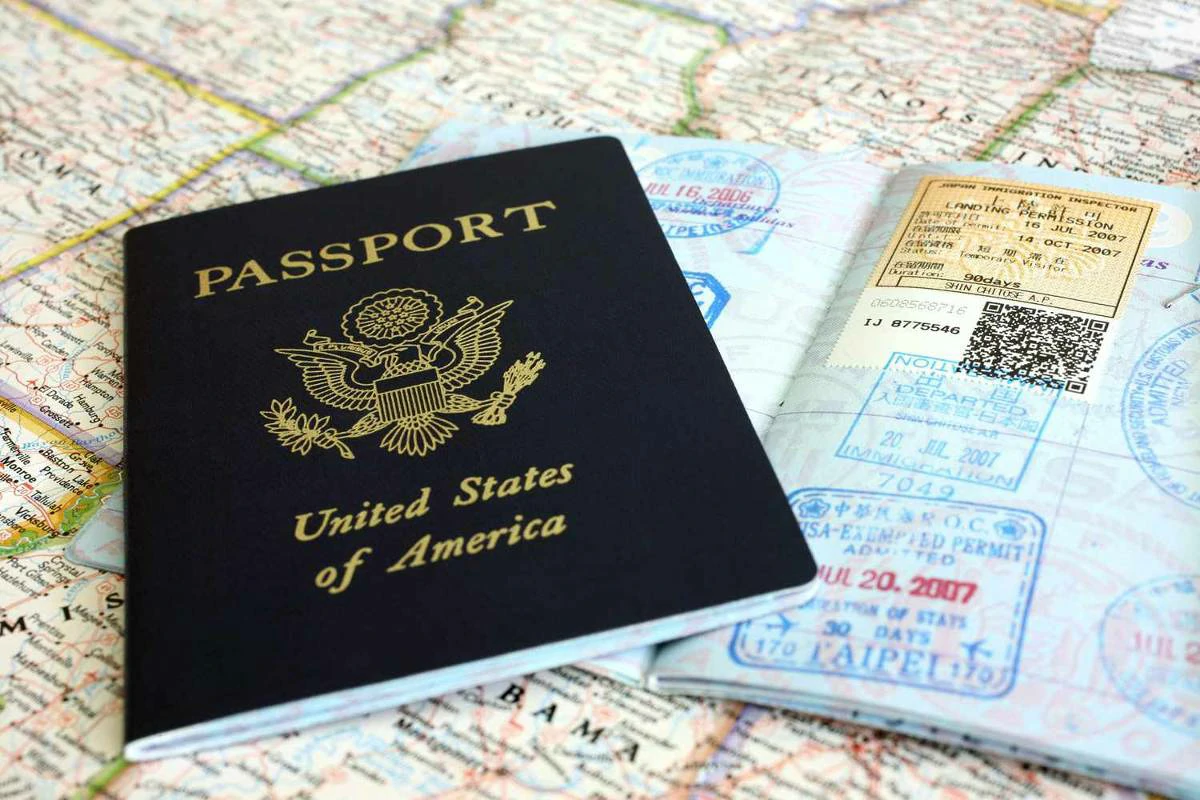What does all-inclusive mean? Answer is – An all-inclusive arrangement (often seen in vacation packages or resorts) means that your upfront cost covers the essentials like lodging, meals, drinks (often including alcoholic beverages), activities, and entertainment. It’s designed to be a worry-free experience where you don’t have to constantly reach for your wallet, allowing you to budget effectively and simply enjoy your time.
Summary
- The core concept of all-inclusive and its benefits
- Typical inclusions in all-inclusive packages
- Factors to consider when choosing an all-inclusive option
- Difference between all-inclusive and a la carte vacations
- Examples of where all-inclusive is popular (resorts, cruises, etc.)
What Does All-Inclusive Mean?

What is an all-inclusive vacation?
The phrase “all-inclusive” has become a buzzword in the travel industry, promising a hassle-free vacation experience. But what does it actually entail? In essence, an all-inclusive vacation is a travel package where the core elements of your trip – accommodations, meals, drinks, activities, and entertainment – are bundled together for a single upfront price.
This model is particularly popular with resorts, especially in tropical destinations like the Caribbean and Mexico. All-inclusive cruises are also gaining popularity, offering a similar concept on the open seas.
The appeal of all-inclusive packages
The allure of all-inclusive vacations lies in their simplicity and convenience. Here’s why they attract so many travelers:
Predictable Budgeting: Knowing that most of your major expenses are covered upfront allows you to budget effectively and avoid unexpected costs during your trip. This can lead to significant savings overall.
Worry-Free Relaxation: Instead of constantly thinking about where to eat, what to do, or how much things will cost, you can truly unwind. All-inclusive resorts are designed to keep you entertained and well-fed without having to leave the property.
Great for Families and Groups: All-inclusive packages can be especially appealing for families or groups of friends, as they cater to a wide range of interests and simplify the logistics of meal planning and activities.
A Taste of Luxury: Some high-end all-inclusive resorts offer luxurious amenities, gourmet dining, and top-shelf liquor, allowing you to experience a taste of luxury without the a la carte price tag.
Sarah Peterson Expert Opinion
Sarah Peterson, Travel Blogger and Founder of “The Travel Escapist” shares her perspective on all-inclusive vacations: “All-inclusive vacations can be a fantastic option for those who want a stress-free experience where everything is taken care of. They’re also great for travelers on a tighter budget, as you don’t have to worry about overspending on food and drinks.”
What Does “All-Inclusive” Typically Include?
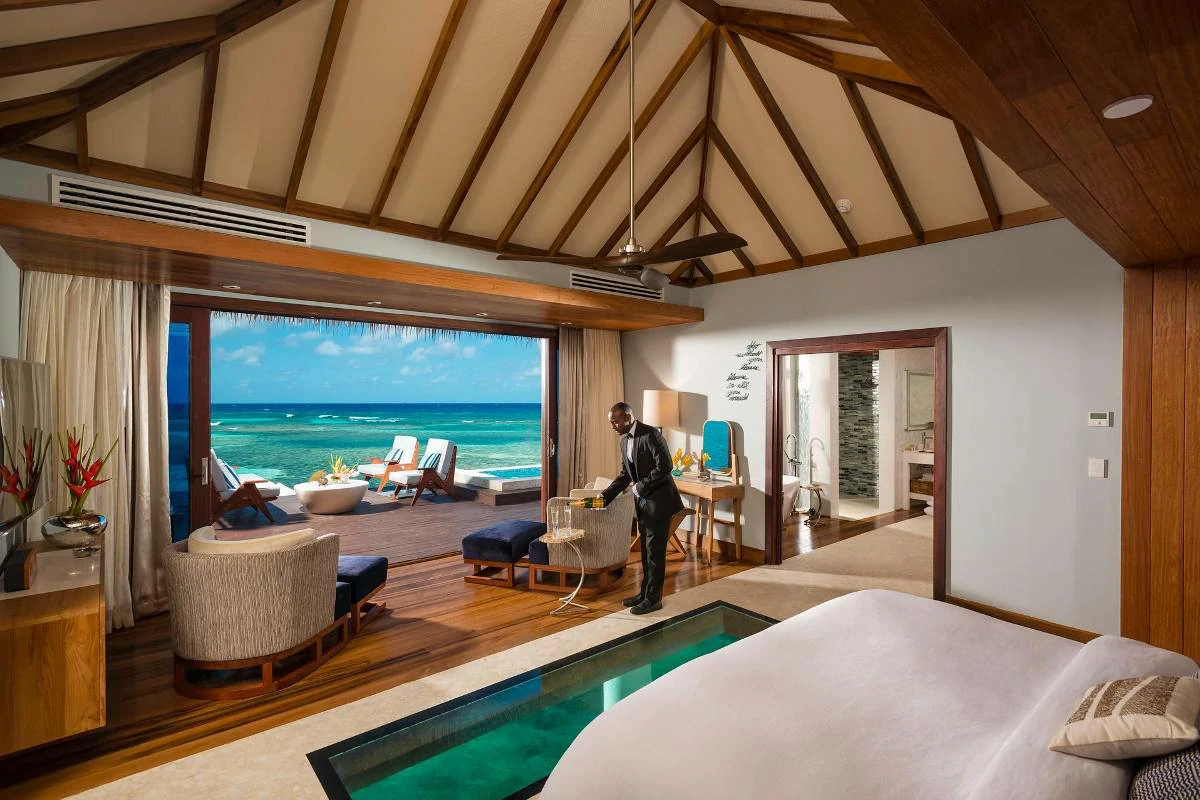
While the specifics vary between resorts, here’s a general outline of the core elements you’ll find in most all-inclusive packages:
1. Lodging
Accommodations: Your room is, of course, the foundation of your all-inclusive package. Room types can range from standard hotel-style rooms to suites, villas, or even overwater bungalows at some luxury resorts.
Hotel Taxes and Fees: Those often-pesky resort fees and local taxes tend to be rolled into the all-inclusive price. This eliminates unpleasant surprises on your final bill.
2. Meals
All-inclusive resorts are known for their focus on food and dining. Here’s what you’ll likely find:
Buffets and Restaurants: Most resorts feature a main buffet restaurant serving breakfast, lunch, and dinner, alongside several a la carte restaurants specializing in different cuisines (Italian, Mexican, seafood, etc.).
Snacks: Many resorts have snack bars, cafes, or poolside grills where you can grab light bites, ice cream, or quick meals throughout the day.
3. Beverages
Staying hydrated and enjoying a refreshing drink is part of the all-inclusive experience.
Alcoholic beverages: Typically, this includes local beer, house wine, and a selection of well liquors used in cocktails. Premium brands often come at an additional charge.
Non-alcoholic beverages : Sodas, juices, bottled water, coffee, and tea are nearly always included. Some resorts may offer fresh smoothies, specialty coffees, or bottled drinks at an extra cost.
Mark Thompson Expert Opinion
Mark Thompson, Seasoned Traveler and Contributor to “The Globetrotter Guru” blog offers this advice: “Before booking your all-inclusive vacation, thoroughly research the dining and beverage options. The quality and variety can differ significantly. Check out reviews and resort descriptions to get a good idea of what to expect.”
4. Activities and Entertainment
Beyond lounging by the pool with a cocktail, all-inclusive resorts pull out all the stops to keep you entertained. Here’s a taste of what you might find:
Watersports: Many beach-side resorts offer:
- Non-motorized watersports like kayaking, paddleboarding, snorkeling, and sometimes even introductory scuba diving lessons.
- Motorized water sports such as jet-skiing or banana boat rides might be included, but often come with an additional fee.
Land-based activities: Resorts often feature a plethora of activities, such as:
- Tennis courts, basketball courts, beach volleyball
- Organized games and sports tournaments
- Bicycles for exploring the local area
- Dance classes, yoga, or fitness sessions
Shows and Performances: Lively entertainment is a hallmark of all-inclusive resorts. Expect evening shows, live music, themed parties, and perhaps even a nightclub or disco on the resort grounds.
5. Amenities
All-inclusive resorts are designed to be self-contained havens. Common amenities include:
Pools and Beaches: The heart of most resorts is an expansive pool complex, often with multiple pools catering to different vibes (quiet zones, swim-up bars, kids areas). Beachfront resorts will have well-maintained beach areas with loungers, umbrellas, and sometimes beachside drink service.
Fitness Centers: Staying active on vacation is easy with on-site fitness centers. While the equipment varies, most offer a basic selection of cardio and weight machines.
Jennifer Stevens Expert Opinion
Jennifer Stevens, Travel Agent specializing in All-Inclusive Vacations at “Adventure Awaits Travel” emphasizes: “The variety and quality of included activities is one of the biggest factors separating different all-inclusive resorts. If you’re an active person who loves to try new things, prioritize resorts with a robust activities program.”
What Else Might Be Included?
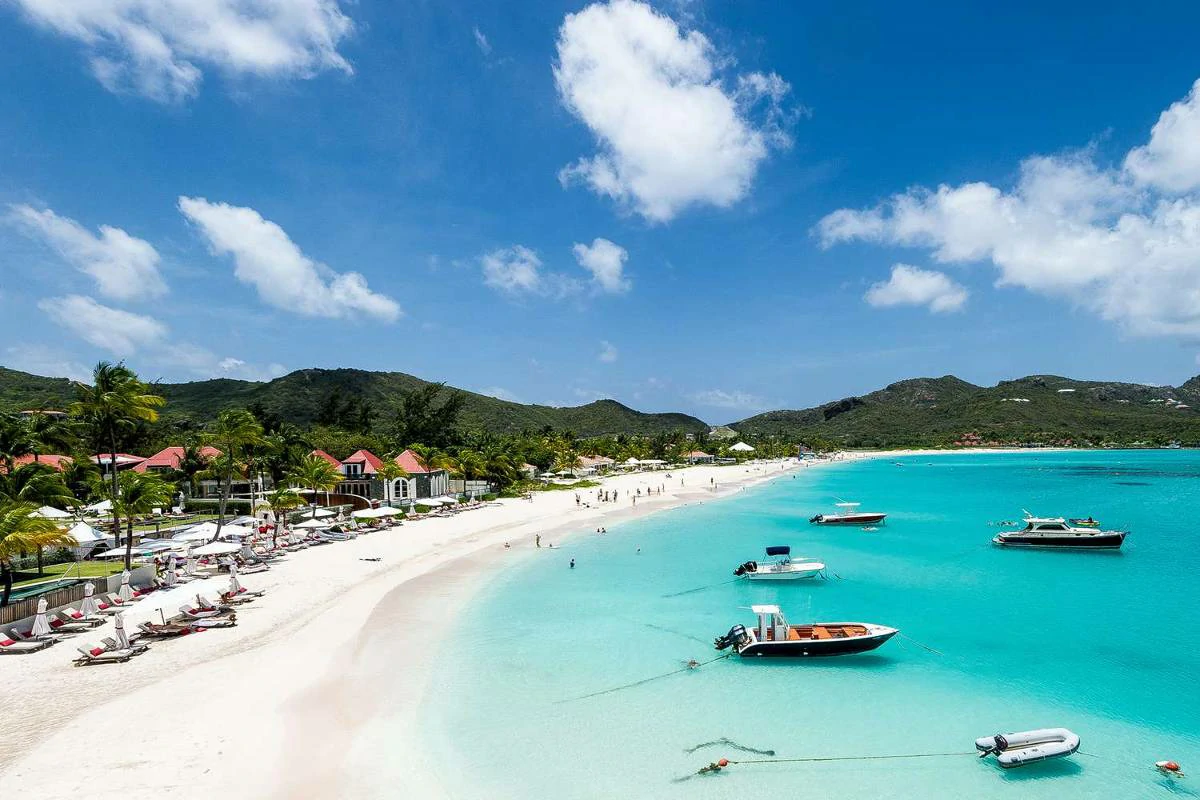
While the core elements we’ve discussed form the backbone of the all-inclusive concept, some resorts sweeten the deal with these extra inclusions:
1. Gratuities/Tips
Tipping Policies: All-inclusive resorts can have varying policies on tipping. Some truly proclaim themselves as “tipping-free zones,” eliminating the need to carry cash for bartenders, servers, or activity staff. Others include gratuities in the package price, while some still leave tipping to your discretion.
Checking Beforehand: Always clarify the resort’s tipping policy before arrival and factor this into your budget if necessary.
2. Airport Transfers
Convenient Arrival and Departure: Airport transfers take the stress out of navigating transportation in a new destination. Some resorts include round-trip transportation between the airport and the resort as part of their package.
Streamlined Logistics: This is especially appealing if the resort is located a significant distance from the airport or if you are unfamiliar with local transportation options.
3. Excursions
Beyond the Resort: While all-inclusives offer plenty to keep you busy within their property, some may include select excursions as a perk. These might be short trips to local attractions, cultural experiences, or nature tours.
Expanding Your Horizons: Included excursions are a great way to get a taste of the destination beyond the beach. Remember, higher-end resorts or special promotions are more likely to include this added benefit.
4. Childcare
Family-Friendly Focus: Some all-inclusive resorts place a significant emphasis on being family-friendly. Beyond kids’ clubs, a few might offer limited hours of included childcare or babysitting services.
Parents’ Escape: This can be a game-changer for parents seeking moments of relaxation or a romantic dinner while knowing their children are supervised and entertained.
Lisa Miller Expert Opinion
Lisa Miller, Family Travel Blogger at “Kids on a Plane”, offers this tip: “If included childcare is essential for you, do your research! Not all ‘family-friendly’ resorts offer this perk. Inquire about age restrictions, hours of operation, and any additional fees that may apply.”
Factors to Consider When Choosing All-Inclusive

1. Budget
Upfront vs. A La Carte: While all-inclusives boast predictable costs, the initial price tag can seem higher than booking accommodations alone. Carefully calculate what you’d realistically spend on meals, drinks, and activities on a traditional vacation, and compare that to the all-inclusive package.
Potential Savings: All-inclusives can offer excellent value, especially if you plan to eat and drink to your heart’s content and take advantage of the included activities.
Hidden Costs: Factor in any “extras” that may not be included, like premium drinks, spa treatments, excursions, or airport transfers, as these can add up.
2. Lifestyle and Preferences
Activity Level: Are you the type to lounge by the pool all day or someone who craves adventure and exploration? Resorts cater to different vibes. Choose one with activities and amenities that align with your desired level of activity.
Dining Preferences: If you’re a foodie who loves to try new restaurants and cuisines, an all-inclusive with limited dining options might feel restrictive. On the other hand, if convenience and predictability are key, all-inclusives excel.
Solo, Couple, or Family: All-inclusive resorts offer varying atmospheres. Some cater specifically to couples seeking romance, while others are havens for families with tons of kid-friendly activities. Select a resort that suits your travel party.
3. Destination
Local Exploration: If experiencing the local culture, restaurants, and attractions beyond the resort is a priority, an all-inclusive might not be the best fit. You might end up paying for meals and experiences you won’t use.
Safety and Convenience: In destinations where safety can be a concern or venturing out independently is less convenient, all-inclusives offer a worry-free, contained environment.
4. Quality of the Resort
Reputation and Reviews: Thoroughly research the resort’s reputation. Look for online reviews, paying close attention to comments on food quality, service levels, and the overall condition of the property. TripAdvisor is a great resource for this.
Star Ratings: While not foolproof, star ratings give a general indication of a resort’s amenities and overall quality.
Price vs. Value: Remember, the cheapest all-inclusive isn’t always the best deal. Balance cost with the quality and range of inclusions to determine true value.
5. Restrictions
Flexibility: All-inclusive resorts often have set dining times, activity schedules, and potential limitations on a la carte restaurant reservations. If you crave ultimate freedom and spontaneity, an all-inclusive might feel too structured.
Dietary Needs: If you have specific dietary restrictions or allergies, inquire with the resort beforehand to ensure they can accommodate your needs.
Brian Davis Expert Opinion
Brian Davis, Owner of “Sunseekers Travel Agency” advises: “Don’t just focus on the price of an all-inclusive package. Prioritize the elements that matter most to you – whether that’s the quality of the food, the activities offered, or the overall ambiance of the resort.”
All-Inclusive vs. A La Carte

1. Cost
All-Inclusive: The higher upfront cost covers most expenses. This offers budget predictability and potential savings if you plan on taking full advantage of the inclusions.
A La Carte: This initially appears cheaper since you only pay for accommodations upfront. However, meals, drinks, activities, and transportation can add up quickly, leading to unexpected costs if not carefully budgeted for.
2. Flexibility
All-Inclusive: Offers a more structured experience with potentially limited dining options and set schedules. It’s best for those who enjoy the simplicity of having everything planned.
A La Carte: Provides ultimate freedom to choose where and when you eat, what activities you participate in, and how you structure your days in general. You’re not tied to your resort.
3. Dining
All-Inclusive: Meals are convenient, with buffets and restaurants readily available. However, the quality can vary, and you might find yourself limited to specific dining times or a smaller selection of a la carte restaurants.
A La Carte: Allows you to explore the local culinary scene, experiencing diverse restaurants and cuisines. This is perfect for foodies who want to truly immerse themselves in the destination’s flavors.
Emily Peterson Expert Opinion
Emily Peterson, Travel Writer for “The Wandering Compass” blog, shares her perspective: “If you’re the type who likes to try a new restaurant every night and explore local markets, an all-inclusive will likely feel stifling. But, if the idea of never having to look at a menu or worry about the bill is appealing, all-inclusive delivers.”
Examples of All-Inclusive Destinations
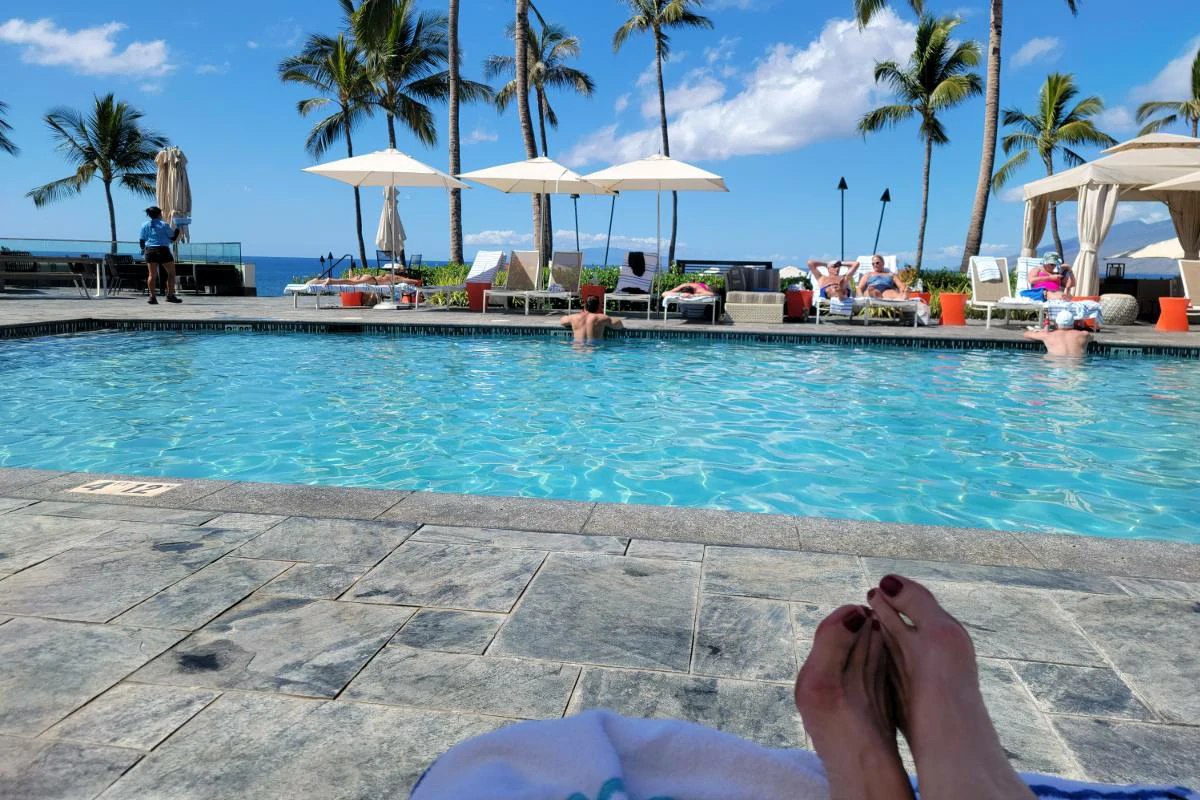
1. Tropical Resorts
The Classics: The Caribbean and Mexico are synonymous with the all-inclusive beach resort. Destinations like Cancun, Punta Cana, and the Bahamas boast a plethora of resorts ranging from budget-friendly to ultra-luxurious.
Beyond the Expected: Don’t overlook other tropical gems! Jamaica, Costa Rica, and even islands in the South Pacific offer stunning all-inclusive experiences.
2. Cruises
Floating All-Inclusives: Many major cruise lines, such as Royal Caribbean, Carnival, and Norwegian offer all-inclusive packages or have ships where most meals, drinks (sometimes excluding top-shelf liquor), and entertainment are included in the base price.
Relaxation and Exploration Combined: Cruises are a fantastic way to sample various destinations while enjoying the convenience of an all-inclusive floating resort.
3. Family-Friendly Vacations
Ease for Parents: All-inclusive resorts are a haven for families, with kids’ clubs, age-appropriate activities, and plenty of dining options to please even the pickiest eaters.
Popular Brands: Look for brands like Beaches and Club Med known for their family-focused all-inclusive properties.
Beyond the Beach: Even theme parks are getting into the all-inclusive game! Resorts near destinations like Walt Disney World offer all-inclusive packages including meals and park tickets.
Amanda Taylor Expert Opinion
Amanda Taylor, Travel Blogger specializing in Family Vacations at “The Adventuresome Family”, offers this tip: “When researching family-friendly all-inclusives, pay close attention to the age ranges catered to by the kids’ clubs. Some are geared towards younger children, while others excel at offering engaging activities for teens.”
Conclusion
All-inclusive vacations offer a convenient and hassle-free way to experience a destination. They can be a great choice for budget-conscious travelers, families with children, or anyone seeking relaxation and enjoyment without worrying about every expense.
However, they might not be ideal for those who crave complete freedom, adventurous exploration, or a deep dive into the local culture.
By carefully considering your priorities, travel style, and budget, you can determine if an all-inclusive vacation is the perfect fit for your next getaway!
FAQs
Q: Are all-inclusive vacations worth the cost?
The answer depends on your spending habits and priorities. If you tend to eat out frequently, enjoy drinks throughout the day, and plan on participating in several activities, an all-inclusive can provide excellent value. However, if you’re a light eater who prefers exploring local restaurants and independently arranging tours, an a la carte approach might be more cost-effective.
Q: How do I choose the right all-inclusive resort?
Here’s your checklist:
- Budget: Set a realistic budget and compare resorts within your range.
- Amenities: Prioritize the inclusions that matter most – pools, beach access, water sports, etc.
- Dining: Research the quality and variety of food options.
- Atmosphere: Seek a resort whose vibe (romantic, family-oriented, lively) aligns with your travel party.
- Reviews: Read online reviews for honest insights into the guest experience.
Q: Are tips included at all-inclusive resorts?
Tipping policies vary. Some resorts are truly gratuity-free, while others may include tips in the package price. Always clarify with the resort beforehand. If tipping is left to your discretion, do consider tipping for exceptional service.
Q: Can I venture outside an all-inclusive resort?
Absolutely! While all-inclusives are designed to keep you entertained within the property, most don’t restrict your movement. You can book excursions, explore nearby towns, and dine at local restaurants if you wish.
Q: Do I need travel insurance for an all-inclusive vacation?
A: While not always mandatory, travel insurance is highly recommended for any vacation, including all-inclusive trips. It protects against unforeseen events like trip cancellations, medical emergencies, and lost luggage, providing peace of mind.
